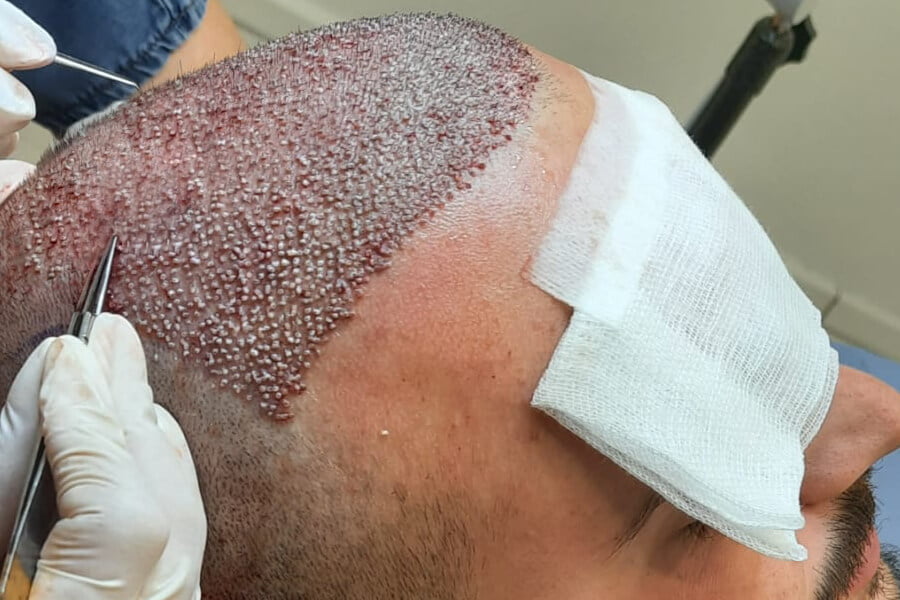Hair loss is a common concern affecting millions worldwide, influencing self-esteem and confidence. As advancements in hair restoration technology continue to evolve, many individuals seek effective solutions to regain a fuller head of hair. One crucial factor that often influences the decision to undergo a hair replacement procedure is age. Understanding the optimal age for such treatments can help individuals make informed choices that align with their hair health and personal goals.
Hair Replacement in Abu Dhabi has become increasingly popular among those seeking reliable and modern solutions to hair loss. Whether driven by genetic factors, lifestyle choices, or environmental influences, the timing of hair restoration procedures plays a significant role in achieving natural and lasting results.
Understanding Hair Loss and Its Progression
The Nature of Hair Loss
Hair loss, medically known as alopecia, can manifest in various forms, including pattern baldness, diffuse thinning, or localized patches. It results from a combination of genetic, hormonal, environmental, and lifestyle factors. Recognizing the type and progression of hair loss helps in planning the most suitable intervention.
Stages of Hair Loss
Hair loss progresses through identifiable stages, often categorized by scales such as the Norwood or Ludwig classifications. Early stages involve minimal thinning, often reversible or manageable with non-surgical options. Advanced stages may require more aggressive treatments or hair replacement procedures to restore appearance and confidence.
Factors Influencing the Ideal Age for Hair Replacement
Genetic Predisposition
Genetics plays a significant role in when and how hair loss occurs. Individuals with a family history of pattern baldness tend to experience earlier or more progressive hair thinning, influencing the timing of intervention.
Extent of Hair Loss
The severity and area of hair loss determine the complexity and timing of treatment. Mild thinning might be addressed with topical solutions or non-invasive procedures, while extensive hair loss often necessitates surgical intervention.
Age-Related Considerations
While there is no universally “perfect” age, certain age brackets are more conducive to successful hair replacement outcomes. Younger individuals may experience more natural results but might also face ongoing hair loss, requiring future treatments. Older individuals often have stabilized hair loss, making them suitable candidates for definitive procedures.
Overall Health and Lifestyle
A person’s overall health, lifestyle, and hair quality influence their suitability for hair replacement procedures. Healthy candidates with good scalp and hair condition are more likely to achieve optimal results regardless of age.
When Is the Best Age to Consider Hair Replacement?
Early Adult Years (20s to Early 30s)
Many individuals in their 20s and early 30s experience initial signs of hair thinning. While some may choose to wait, early intervention can sometimes prevent further loss and achieve more natural results. However, ongoing hair loss in this stage requires careful planning to avoid the need for future adjustments.
Middle Age (30s to 50s)
This age group often presents the most favorable window for hair replacement procedures. Hair loss tends to stabilize, making it easier to predict future hair patterns and plan effective restoration strategies. Many individuals find this an ideal time to undergo treatment for long-lasting results.
Older Adults (60s and Beyond)
Older individuals may have more stable hair loss patterns, making them suitable candidates for hair replacement. However, age-related health considerations and scalp condition should be assessed to ensure optimal outcomes.
The Role of Hair Replacement in Overall Hair Restoration Strategy
Combining Treatments for Better Results
Hair replacement procedures are often part of a comprehensive hair restoration plan. Combining surgical options with medical treatments like growth stimulants, nutritional support, or topical solutions can enhance the longevity and natural appearance of results.
Expectations and Long-Term Planning
Understanding that hair replacement is a personalized process helps set realistic expectations. Age, extent of hair loss, and individual goals shape the approach, ensuring satisfaction and a natural look.
How to Determine If You’re a Suitable Candidate
Professional Evaluation
A thorough consultation with a qualified specialist assesses scalp health, hair density, and the pattern of hair loss. This evaluation helps determine the most appropriate timing and method of treatment tailored to your age and condition.
Personal Goals and Lifestyle
Your desired outcome, lifestyle, and future plans influence the decision-making process. Discussing these factors ensures that the chosen procedure aligns with your expectations and life circumstances.
Conclusion
Determining the best age for Hair Replacement Abu Dhabi or elsewhere hinges on multiple factors, including the stage of hair loss, overall health, and personal goals. While early intervention can sometimes prevent further loss, many individuals find middle age to be an ideal period for definitive treatment due to stabilized hair loss patterns. Ultimately, consulting with experienced hair restoration specialists ensures personalized planning, helping you achieve natural, long-lasting results regardless of age.
FAQs
1. Is there an ideal age to start hair replacement procedures?
While there’s no strict age requirement, many experts recommend considering hair replacement in the early to middle adult years when hair loss is stabilized, typically between late 20s and 50s. However, individual circumstances vary, and personalized assessments are essential.
2. Can young adults undergo hair replacement procedures?
Yes, young adults can undergo hair replacement if they have significant hair loss affecting their confidence and quality of life. However, careful evaluation is necessary to ensure that ongoing hair loss is managed appropriately and that the results remain natural over time.
3. How does age impact the longevity of hair replacement results?
Age can influence scalp elasticity, hair quality, and healing capacity, all of which affect the longevity of results. Generally, individuals within the suitable age range with stable hair loss patterns tend to achieve more durable outcomes.
4. Should I wait until my hair loss stabilizes before opting for a procedure?
Waiting until hair loss stabilizes can lead to more predictable and natural results. However, early intervention might prevent further loss and reduce the extent of restoration needed. Consulting a specialist helps determine the best timing based on your specific condition.
 WhatsApp Us Now
WhatsApp Us Now







